Search Results
Showing results 1 to 16 of 16
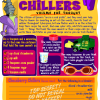
Chocoberry Chillers: Volume for Thought
Source Institutions
In this Cyberchase activity, have fun measuring volumes and enjoy a delicious shake.

Sweet Measurements
Source Institutions
In this activity on page 3 of the PDF, learners investigate how much sugar is in a soda. Learners use sugar cubes to measure and calculate the amount of sugar in a bottle of soda.
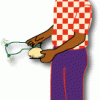
Fruity Electricity
Source Institutions
In this activity, Frankenstein's lab is running out of electricity! Learners use fruit to help Igor find a temporary source of energy to turn on a light.
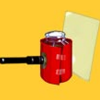
Turbidity
Source Institutions
This is an activity about turbidity, or the amount of sediment suspended in water.
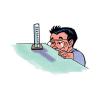
Change in Temperature: Endothermic Reaction
Source Institutions
Learners investigate signs of a chemical reaction when they mix vinegar and baking soda. In addition to a gas being produced, learners also notice the temperature decreases.

Chew that Gum
Source Institutions
In this quick activity (page 1 of PDF under SciGirls Activity: Exercise and Memory), learners will investigate what happens to bubble gum when it is chewed for 5-10 minutes.

Rollin’ Rollin' Rollin'
Source Institutions
In this physics activity (page 12 of the PDF), learners explore potential and kinetic energy by rolling different sized marbles down an inclined plane.

Cold Metal
Source Institutions
In this activity, learners discover that our hands are not reliable thermometers.

Cool It!
Source Institutions
In this fun hands-on activity, learners use simple materials to investigate evaporation. How can the evaporation of water on a hot day be used to cool an object? Find out the experimental way!
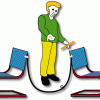
Raceways
Source Institutions
In this activity, learners build a model roller coaster to help the Mummy entertain the Atom's Family monsters. Learners assemble the roller coaster between two chairs using vinyl ceiling molding.

Push It Out
Source Institutions
In this physics related activity which requires adult supervision, learners make their own powerful water rocket and, with it, explore Newton's Third Law of Motion.
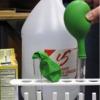
Conservation of Mass
Source Institutions
This activity was designed for blind learners, but all types of learners can participate to learn about conservation of gas. This is one of the classic experiments using baking soda and vinegar.
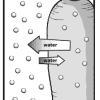
Bend a Carrot
Source Institutions
In this activity, learners investigate the process of osmosis by adding salt to a sealed bag of raw carrots and comparing it to a control.

Round & Round
Source Institutions
In this activity, learners make and test fly paper helicopters. Learners use templates to create paper helicopters and then take take turns flying them in the air.

What does Color have to do with Cooling?
Source Institutions
In this demonstration/experiment, learners discover that different colors and materials (metals, fabrics, paints) radiate different amounts of energy and therefore, cool at different rates.
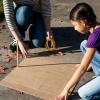
Ancient Sun Observations
Source Institutions
In this activity, learners make their own Sun tracker to explore how ancient civilizations around the world studied the Sun.
